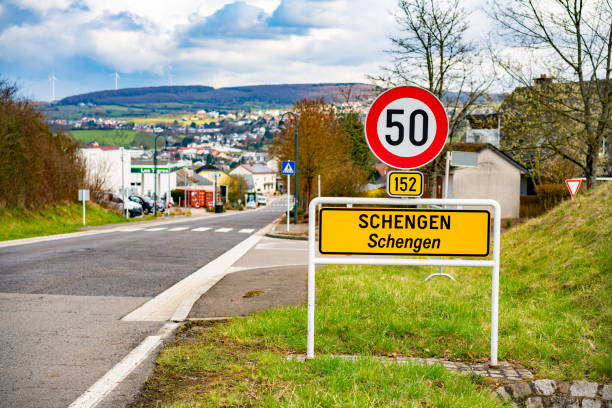The Romanian President has stated that the Schengen Area is no longer operational.
The President of Romania, Klaus Iohannis, asserts that the functionality of the Schengen Area has ceased.
His statements, made in anticipation of the European Council, were prompted by Austria's persistent opposition to the inclusion of Romania and Bulgaria in the Schengen Zone.
According to Romania's President, Austria's arguments against his country's and Bulgaria's membership in the borderless area lack transparency.
Austria explicitly states that its objection is not aimed at Romania and Bulgaria, it firmly opposes the expansion of the Schengen area.
Klaus Iohannis
Earlier this month, Austrian Chancellor Karl Nehammer reiterated his country's veto on the accession of Romania and Bulgaria to the Schengen Zone. He clarified that this decision is unrelated to the efforts of the two Balkan countries in safeguarding the EU's external borders. Despite acknowledging their contributions, Nehammer previously emphasized the need for reform within the Schengen Zone. He argued that expansion is futile until the existing issues are addressed.
In contrast, the President of Romania stated that the Schengen agreement is nearly obsolete, given the reintroduction of border controls by several countries due to immigration and Middle East-related concerns.
On December 8 of the previous year, Austria blocked Romania's entry into the Schengen Zone, citing worries about irregular migration. Spain's Interior Minister, Fernando Grande-Marlaska, expressed optimism this month about finalizing Romania and Bulgaria's accession by December, prioritizing the matter during Spain's EU Council presidency.
Despite Spain's hopes, Austria maintains its stance. Bucharest has warned of potential legal action against Austria over the Schengen blockade. Romania's Prime Minister, Marcel Ciolacu, affirmed that if Vienna upholds its veto at the December Justice and Home Affairs Council meeting, Romania reserves the right to challenge the decision at the European Court of Justice.
If we continue in the manner where Austria exercises its veto right without valid justification, focusing not on the 3 percent migration issue, I maintain the option to contest Austria's decision at the High Court.
Marcel Ciolacu
Stressing that both Romania and Bulgaria have met all the needed requirements for more than ten years, Ciolacu considered Austria’s position unjustified.

